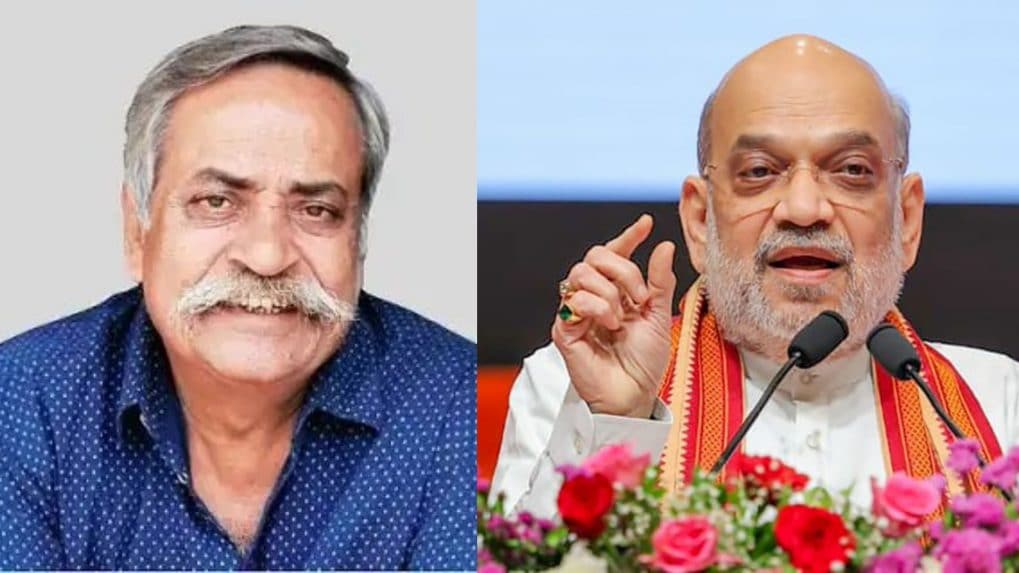Advertising
From Pink Slips to Silent Sidelining: Inside adland’s layoff and anxiety crisis

Advertising icon Piyush Pandey, who transformed Indian advertising with his creative genius and cultural sensitivity, passed away on Friday at the age of 70.
Pandey created some of India’s most memorable campaigns--from Cadbury Dairy Milk’s “Kuch Khaas Hai” and Fevicol’s “Mazboot Jod”, to Hutch (Vodafone)’s “You and I” featuring Cheeka the pug, and the “Do Boond Zindagi Ke” polio awareness campaign. He also penned the patriotic anthem “Mile Sur Mera Tumhara” and crafted the “Kaun Banega Crorepati Season 2 – Do Guna Zyada Umeed” campaign.
His funeral will be held on Saturday, October 25, at 11 a.m. at Shivaji Park Crematorium in Mumbai.
Union Home Minister Amit Shah paid tribute to Pandey, calling him a stalwart of the advertising and communication industry.
“He set high standards in connecting with the masses with creativity. My condolences to his family, friends, and admirers. Om Shanti,” Shah wrote on X.
Pained by the demise of Piyush Pandey Ji. A stalwart in the advertising and communication industry, he set high standards in connecting with the masses with creativity. My condolences to his family, friends, and admirers. Om Shanti.
— Amit Shah (@AmitShah) October 24, 2025
Prime Minister Narendra Modi also expressed his grief, saying Pandey made “a monumental contribution to the world of advertising and communication.”
“I will fondly cherish our interactions over the years. Saddened by his passing away. My thoughts are with his family and admirers. Om Shanti,” the Prime Minister wrote.
Shri Piyush Pandey Ji was admired for his creativity. He made a monumental contribution to the world of advertising and communications. I will fondly cherish our interactions over the years. Saddened by his passing away. My thoughts are with his family and admirers. Om Shanti.
— Narendra Modi (@narendramodi) October 24, 2025
Amitabh Kant, former CEO of NITI Aayog, shared an old video with Pandey and wrote, “He was the best storyteller one could ever meet. Piyush believed in and cultivated the power of branding with an indigenous twist, flavour, and creativity that put India on the global map. His spirit will continue to inspire us.”
Heartbroken by the loss of my dear friend and creative genius Piyush Pandey. He was the best storyteller one could ever meet. Piyush believed in and cultivated the power of branding with an indigenous twist, flavour, and creativity that put India on the global map. He had a… pic.twitter.com/L8fRLIBRCq
— Amitabh Kant (@amitabhk87) October 24, 2025
Political leaders also recalled Pandey’s wit, warmth, and originality. Union Finance Minister Nirmala Sitharaman wrote,
“A titan and legend of Indian advertising, he transformed communication by bringing everyday idioms, earthy humour, and genuine warmth into it. His legacy will continue to inspire generations.”
Saddened to hear of the passing of Shri Piyush Pandey.
— Nirmala Sitharaman (@nsitharaman) October 24, 2025
A titan and legend of Indian advertising, he transformed communication by bringing everyday idioms, earthy humor, and genuine warmth into it.
Have had opportunities to interact with him on various occasions.
Heartfelt… pic.twitter.com/tytshG1aHK
Commerce and Industry Minister Piyush Goyal called Pandey a close friend and said,
“He leaves behind a deep void that will be hard to fill.”
Truly at a loss for words to express my sadness at the demise of Padma Shri Piyush Pandey.
— Piyush Goyal (@PiyushGoyal) October 24, 2025
A phenomenon in the world of advertising, his creative genius redefined storytelling, giving us unforgettable and timeless narratives.
To me, he was a friend whose brilliance shone… pic.twitter.com/t6ZDSViCrS
Smriti Zubin Irani, former Union Minister for Textiles and Education, wrote, “Piyush Pandey wasn’t just an ad man — he was one of India’s finest storytellers. His words made brands human and ideas immortal.”
Piyush Pandey wasn’t just an ad man — he was one of India’s finest storytellers . He taught us that emotion is the truest language of creativity. His words made brands human, and ideas immortal. Farewell to a legend who made us feel, think, and smile.
— Smriti Z Irani (@smritiirani) October 24, 2025
Pandey played a pivotal role in Prime Minister Modi’s 2014 election campaign, coining the now-iconic slogan “Ab Ki Baar Modi Sarkar.” At the Cannes Lions advertising festival, he once recalled how Modi approached him personally for the campaign. Initially hesitant, Pandey agreed, having previously worked with Modi during his tenure as Gujarat’s Chief Minister.
His task was clear--to craft a campaign centered around Modi rather than the BJP --a strategy later echoed in follow-up slogans like “Modi hai to mumkin hai” (If Modi is there, it’s possible).
Born in Jaipur in 1955, Pandey joined Ogilvy India in 1982 after brief stints as a cricketer, tea taster, and construction worker. Over four decades, he turned Ogilvy into a powerhouse of Indian creativity.
He became the first Asian to serve as jury president at the Cannes Lions International Festival of Creativity in 2004 and received the CLIO Lifetime Achievement Award in 2012. In recognition of his contribution to Indian advertising, he was honoured with the Padma Shri.
Pandey stepped down as Executive Chairman of Ogilvy India in 2023, taking on an advisory role thereafter.
He is survived by his family, colleagues who became his extended family, and a body of work that continues to define the heart and soul of Indian advertising.
From purpose-driven work and narrative-rich brand films to AI-enabled ideas and creator-led collaborations, the awards reflect the full spectrum of modern creativity.
Read MoreLooking ahead to the close of 2025 and into 2026, Sorrell sees technology platforms as the clear winners. He described them as “nation states in their own right”, with market capitalisations that exceed the GDPs of many countries.